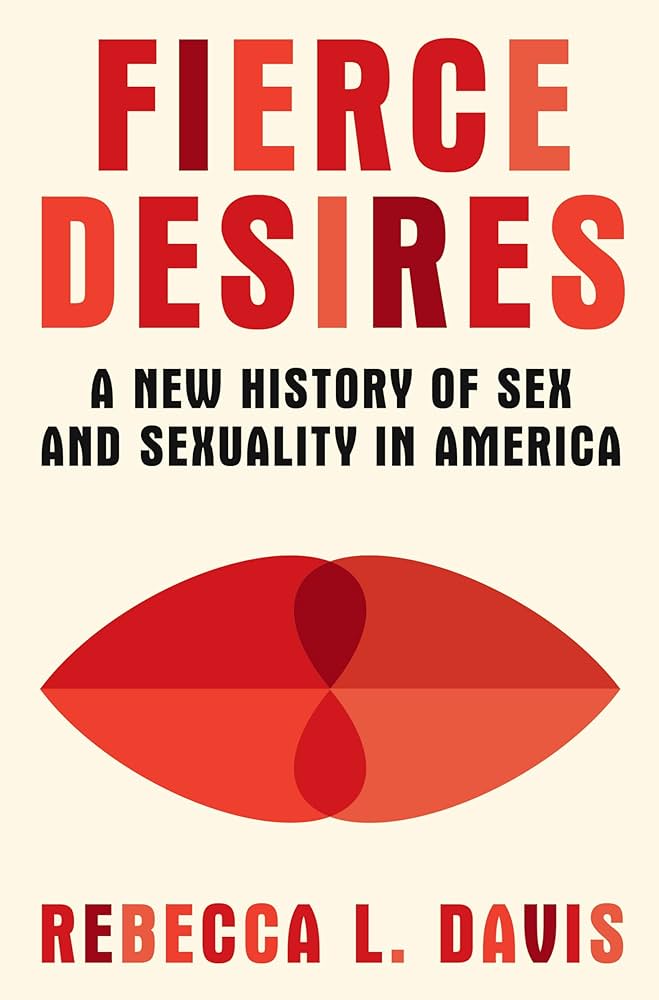

Rebecca L. Davis is Miller Family Early Career Professor of History and Associate Professor of Women and Gender Studies at the University of Delaware. This interview is based on her new book, Fierce Desires: A New History of Sex and Sexuality in America (W. W. Norton & Company, 2024).
JF: What led you to write Fierce Desires?
RD: The idea for this book arose in response to two main factors: the need the general public has for this history, and the recognition that it had been more than 30 years since John D’Emilio and Estelle Freedman published the first edition of Intimate Matters: A History of Sexuality in America (1988), during which an avalanche of scholarship (much of it inspired by their book) called for a reconsideration of the how we present this crucial history. Intimate Matters was groundbreaking; it established the history of sexuality in America as a respected, dynamic, and consequential field of study. Since its publication, we’ve learned a tremendous amount more about the queer histories of people of color, the importance of sexuality to the history of American slavery, and transgender history, among many other subjects. I leapt at the opportunity to write that new narrative.
JF: In 2 sentences, what is the argument Fierce Desires?
RD: Fierce Desires shows that centuries before Americans spoke about sexual identities, they expressed and argued about the meaning of their desires, an argument that challenges any notion of a golden age of sexual stability. Looking back over four hundred years of history, this book focuses on how and why Americans came to believe that sexuality was a singularly significant aspect of their identities, shifting from a reflection of social and religious status to a source of self-recognized personhood.
JF: Why do we need to read Fierce Desires?
RD: As one news event after another broke while I was completing this book—a #MeToo case, the Dobbs decision, new challenges to LGBTQ rights—I occasionally worried that Fierce Desires might miss its moment for relevance by the time we published it. My editor’s reassurances that this is a perennially relevant subject proved correct. We live today with the echoes of past arguments over sexual values and regulations. To deal with the world we’re in now, we need a deeper understanding that what we see today reflects not inevitability but profound historical changes, rooted in the actions of individuals, not in primordial urges or inevitable moral codes.
JF: Why and when did you become an American historian?
RD: I started my PhD program in 2000, knowing that I loved learning and writing about American history, without any notion of becoming a historian of sexuality. In fact, I wasn’t really aware at the time that one could be a historian of sexuality. Instead, I was broadly interested in women’s and gender history, histories of immigration, and American Jewish history. Questions about how people navigated differences of gender, class, religion, and perceived race piqued my curiosity, and I soon realized that I was drawn to specific questions—about birth control advocacy, LGBTQ people, and gender equality. Those interests led me to the topic of my dissertation (on the history of marriage counseling in the United States), which turned into a larger investigation of the history of heterosexuality.
JF: What is your next project?
RD: For now, I’m working with Peyton Cleary, an MA in History and current MLS student, on an instructor’s guide to accompany Fierce Desires, something that would have chapter summaries, key words and their definitions, links to additional free online instructional resources, and suggestions for primary sources or classroom activities, all with the goal of encouraging other instructors to assign this book to their classes.
JF: Thanks, Rebecca!